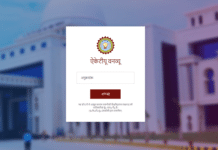
Maya Angelou is one of the boldest modern American writers. In her biography, I Know Why the Caged Bird Sing she explains her first rape. She was eight years old and was living in her maternal house with her grandmother and uncles and it was a neighbour who raped her. She did not know what happened to her and when she explained it to her family, it was their honour that was compromised. The rapist got bailed in a matter of days and her family exacted their vengeance by killing him in public. But little Maya Angelou felt it was her voice that killed the person. And she refused to utter a word for long three years. In spite of her family’s support she felt it was her fault. Daya Bai, a social worker in Jharkand mentions that she burnt her breasts after an attempted rape, because she felt it was her body, her fault that caused the rape.
When TOI defended the infamous Deepika cleavage controversy, they said in the open that if Deepika has the right to wear the dress then they have every right to make that statement. It was criticised for being sexist and misogynist but is it not just another form of slut shaming. When someone insists on not wearing a skirt when it is dark, are we not indirectly accepting that it was the dress that invited the attack? When hostels put different curfew timings for boys and girls are we not seconding the ML Sharma’s statements?
In a nation where two rapes occur every hour, one can be rest assured that every time one pass a lewd comment on Facebook, some rape victim might read it. And you would be burdening her with the guilt of being raped, of having a body rather than supporting her. May be it would more sensitive of people not to let out frustrations behind the online masks and accept it online and offline that rape is not the victim’s fault.
By Anna George
St Stephens College
For DU Times





















